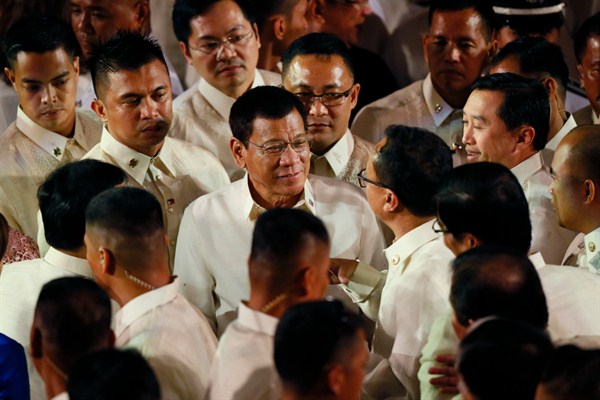The international headlines generated recently by the Philippines combative new president, Rodrigo Duterte—over extrajudicial killings of suspected drug dealers in the country and a slur directed at U.S. President Barack Obama this week—have overshadowed his efforts to seek peace with communist rebels to end one of Asia’s longest-running insurgencies. Just over two months after being inaugurated, Duterte opened a first round of official talks in Norway in late August. Although early overtures suggest a level of promise not seen for decades, it remains to be seen whether the government and rebels can succeed where past talks have failed and translate this goodwill into sustainable peace.
The struggle between the Philippine government and the Communist Party of the Philippines (CPP)—along with its armed wing, the New People’s Army (NPA), and the broader political coalition known as the National Democratic Front of the Philippines (NDFP)—has been going on for nearly half a century, with about 150,000 combatants and civilians dead since violence first broke out in 1971. The NPA’s numbers are estimated to have dwindled to just around 4,000 members today from their peak in the 1980s, but both sides have struggled to find a political solution despite peace talks under multiple administrations, including Duterte’s predecessor, Benigno Aquino III.
At first glance, Duterte would seem to be well placed to finally broker a solution. A self-proclaimed socialist, he has known links to the founding chair of the CPP, Jose Maria “Joma” Sison, now in exile in the Netherlands; he even took a college course with him at Lyceum University in Manila in the 1960s. And as the first Philippine president from the country’s south and the former mayor of Davao City, he has actual experience dealing with Muslim and communist insurgent groups on their own turf.

